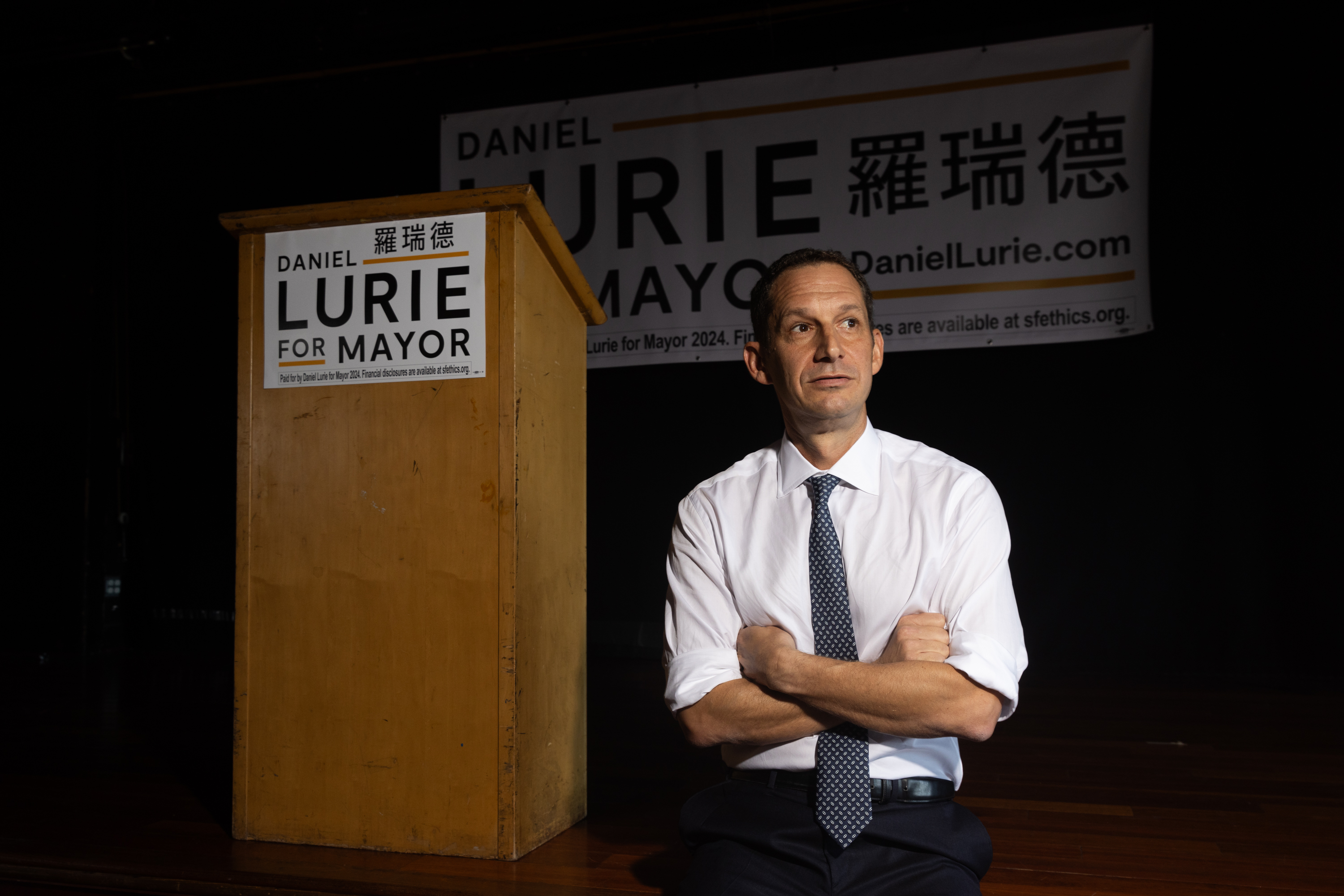Daniel Lurie’s bid to become mayor of San Francisco was always going to be tough, considering he’s never run a campaign or served in elected office. But money was never seen as a potential issue for the nonprofit founder and heir to the Levi Strauss fortune.
However, there is a growing suspicion that Lurie—whose campaign collected more than a half-million dollars in just a few months last year but also spent almost $400,000 during that time—will need to fund his campaign to remain competitive. Lurie is challenging Mayor London Breed and now faces added competition from another moderate Democrat after Mark Farrell, a former supervisor who briefly served as mayor, jumped into the fray last month.
Despite having millions in support from an independent committee funded by his mother, brother and others, Lurie still needs significant resources for his own campaign to control the narrative and raise his name recognition. Farrell’s mayoral campaign, which is appealing to some voters who were perhaps initially drawn to Lurie, might have complicated the math on Lurie’s personal fundraising.
Tyler Law, a political consultant for Lurie’s campaign, said no decision has been made on whether to participate in the city’s public matching fund program, which provides up to $1.2 million to qualifying candidates for mayor.
“We continue to outpace the field in fundraising,” said Law, who is a partner at Thematic Campaigns.
Public financing gives candidates additional funds but places a cap on his spending. By sidestepping the public matching program, Lurie could run the risk of turning off some voters but he would be able to spend an unlimited sum.
“What we know from research is that self-funding is less effective,” said Jason McDaniel, a political science professor at San Francisco State University. “It’s very difficult for someone to buy an election, as much as people worry about money.
The deadline to make a decision is June 14.
Lurie, who founded Tipping Point and raised hundreds of millions for the nonprofit thanks to his elite network of family and friends, has tapped well-heeled contacts like Marissa Mayer, the former CEO of Yahoo, and multiple members of the Getty clan to help his campaign.
But the campaign has spent money almost as fast as it has come in. Sizable payments for advertising and staff before the end of the year included: $77,400 to Thematic Campaigns; $46,400 to spokesperson Max Szabo; $42,000 to campaign manager Trishala Vinnakota; $30,000 to digital ad firm Uplift; $20,600 to Sutton Law Firm; and almost $16,000 to campaign finance director Duncan Cady, who graduated college in June.
Political insiders have long suspected Lurie will dip into his own bank account the way developer Rick Caruso did in his bid to become mayor of Los Angeles in 2022; Caruso spent more than $100 million of his own money and ultimately lost to Karen Bass. Although no one expects San Francisco’s contest to get that pricey, the mayor’s race is already expected to become the most expensive in city history.
“It’s been pretty inevitable [Lurie] will self-fund,” McDaniel said. “It was the theory from the beginning if he was going to raise his favorables and name recognition.”
No serious candidate for mayor of San Francisco has chosen to turn down public financing since the late Ed Lee, who won the mayor’s race in 2011 and was reelected in 2015. Word of Lurie potentially paying for his own campaign has his opponents crowing.
Maggie Muir, a political consultant for Mayor London Breed, suggested that Lurie’s spending could become a punchline.
“It’s going to become a joke,” Muir said. “How much money can Daniel Lurie keep shoveling into the furnace?”
Jade Tu, a campaign manager for Farrell, also pounced on Lurie potentially self-funding.
“We will never self-fund because we are powered by the community and San Franciscans who want change,” Tu said, noting that Farrell’s campaign has already qualified for public matching funds.
Derek Jansen, a political consultant working on the mayoral campaign of Supervisor Ahsha Safaí, who is likely to finish in fourth place in the mayoral fundraising horse race, suggested that “small donations” will drive Safaí’s bid.
He added that “just having billionaire-backers and inherited wealth does not make someone a serious contender. People will decide this election, not money.”
